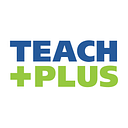Teachers Should Guide the Objectives of Teacher Preparation Programs
By Kevin Cormier
A decade ago, I went from managing a record store to teaching math to seventh graders. I was 31 years old, by all accounts an adult, making a not unheard-of career switch. A close friend of the family who was the dean of education at a local university got me into an alternative certification program which would put me in front of actual students in less than a year.
I thought I was all set. It turned out I wasn’t.
When I decided I wanted to teach, I took the first pathway offered to me while doing exactly zero research or prep work. I’m pretty good at making adjustments on the fly — a strength for a teacher ― but I would’ve probably have had to do that less frequently if I had put in more work before I started. I didn’t know anything about teacher prep programs, particularly the ones which did not require full-time attendance.
If I’m being completely honest, that program wasn’t for me. It was a cohort of 20 people, 19 of whom were already classroom teachers, and me. The expectations were that I had some experience in front of students, or at the very least had been in a classroom recently. I graduated from high school in 1992 and took over a classroom in 2006; in the interim, standardized testing and No Child Left Behind became part of the landscape for all teachers, and I didn’t know what they were talking about. I got through the program and was hired a mere eight months after I took my first class in it.
My real teacher preparation happened during my first year of teaching. I was fortunate to be in an incredibly supportive environment and have an outstanding mentor. As I’ve gone through my career and read about the dismal statistics about teacher turnover, I realized that I was an exception. It doesn’t have to be that way.
Teach Plus’ just-released report, based on a survey of 755 teachers in 26 states, highlights the most important metrics that should be measured when evaluating and reporting on educator preparation programs. In analyzing the survey — I’m one of the report’s authors — we found that educators want to hold their programs accountable for their teacher’s “impact on student learning” and “demonstrated teaching skill.” In other words, programs’ metrics should be more in line with what teachers would be evaluated on in their classrooms. State and educator preparation programs should pay close attention to the report’s results. Here is why:
We don’t have enough warm bodies as is.
The widespread activism of teachers, evident in the recent wave of strikes and protests, has been vital in refocusing the nation’s attention on the lacking state of education in this country. However, I would be naive to imagine that these stories are inspiring our best and brightest to answer their nation’s call to help forward our society. As such, we should be doing all we can to keep our talent in our profession, and one of the quickest ways to lose that talent is to underprepare it. I lucked out with my situation, but I cannot possibly think that all first-year teachers have the same support system that I did.
Every student deserves excellent teachers.
Much in the way that veteran teachers supported me when I was first hired, I want new teachers to be as successful as possible. I want to mentor, guide, lead, and mold young teachers. But I’m also mentoring and guiding 100 students at the same time. So, I want to fill in gaps for teachers who have been properly prepared, not do the work that their program failed to do. When a teacher comes with a strong pedagogical base, the rest can come while they grow, and the students in front of them do not suffer while someone learns on the job.
Relationships are healthy.
In many places throughout the country, there are districts in need of quality teachers in proximity to teacher prep programs. It would be of benefit to all involved if there was an open dialogue between the classroom teachers, the district administration, and the prep program so that the program directors knew how to best prepare teacher candidates to be successful in districts which would likely employ them. And given the cost of teacher turnover, we should get this right as often as possible.
There is no better judge of a teacher preparation program than a teacher who’s gone through it. So, who better than teachers to guide the objectives of educator preparation programs?
Kevin Cormier teaches 7th and 8th grade math at Nissitissit Middle School in Pepperell, Massachusetts. He is a Teach Plus Commonwealth Senior Policy Fellow.
